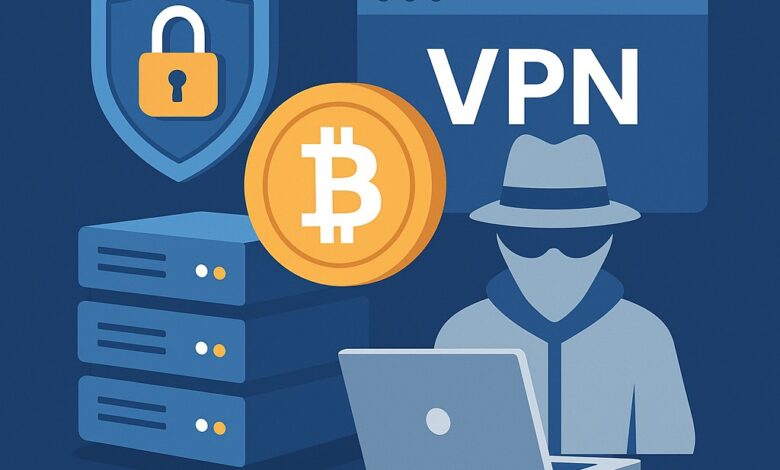Crypto Hosting Explained: Secure, Fast, and Anonymous Solutions

The internet is vast, open, and constantly evolving. Yet, alongside its growth, privacy risks, censorship attempts, and legal restrictions have increased. For businesses, developers, journalists, and activists, the ability to publish content securely without fear of takedowns or identity leaks is more important than ever. Enter Crypto Hosting—a modern hosting solution designed for security, speed, and anonymity.
Crypto Hosting allows websites, applications, and digital services to thrive outside the limitations of traditional hosting. It emphasizes private payments, offshore servers, DMCA-ignore policies, and advanced security protections. In this guide, we’ll explore everything about Crypto Hosting: what it is, why it matters, how it works, and how to choose the right provider.
What is Crypto Hosting?
At its core, Crypto Hosting is a type of web hosting service where cryptocurrency is the primary form of payment and privacy is a top priority. Unlike mainstream hosting providers that demand personal identification, bank details, or credit cards, crypto hosting lets you buy hosting plans with Bitcoin, Ethereum, Monero, or other digital currencies.
But it goes far beyond payment methods. True crypto hosting integrates features like:
- Anonymous accounts with minimal or no KYC verification.
- Offshore servers located in countries with privacy-friendly laws.
- Bulletproof or DMCA-ignore hosting, where takedown requests may be disregarded.
- Advanced encryption and DDoS protection to safeguard content.
- Resilient, high-speed networks for global accessibility.
In short, Crypto Hosting merges financial freedom with technical resilience, making it an attractive solution for those who value online independence.
Why Crypto Hosting Matters Today
Why has Crypto Hosting become so popular? The answer lies in the challenges of today’s digital world.
- Rising Privacy Concerns
Governments and corporations monitor user activity, collect browsing data, and even restrict access to certain websites. For individuals who want to avoid surveillance, hosting services that accept only crypto payments offer extra layers of anonymity.
- Censorship Resistance
From political blogs to independent media outlets, censorship is a real threat. Hosting content with providers that operate in offshore jurisdictions protects websites from takedown attempts.
- Flexible Payments
Traditional hosting locks you into card or bank payments, leaving trails tied to your real identity. With crypto hosting, payments are pseudonymous, and some providers even support privacy coins like Monero for untraceable transactions.
- Alignment with the Decentralization Ethos
Crypto enthusiasts believe in freedom from centralized control. Crypto hosting aligns perfectly with this philosophy by letting users manage digital assets, websites, and platforms outside mainstream restrictions.
Features That Define Crypto Hosting
When evaluating Crypto Hosting, the following features matter most:
Crypto Payments – Bitcoin, Ethereum, stablecoins, and privacy coins supported.
Minimal KYC – Providers often ask for no personal information.
Offshore Jurisdictions – Data centers in countries like Iceland, Panama, or the Netherlands.
Bulletproof Infrastructure – Resistant to DMCA takedowns and external pressure.
High-Speed Connectivity – Global reach with optimized bandwidth.
Strong Encryption – Secure connections and encrypted data at rest.
DDoS Protection – Shields against attacks aiming to disrupt service.
Flexible Plans – Shared hosting, VPS, RDP, or dedicated servers.
Anonymous Domains – Many providers also sell domains without identity checks.
Transparent Policies – Clear terms on what is or isn’t allowed.
Types of Crypto Hosting
Not all Crypto Hosting is the same. Depending on your needs, you’ll encounter these options:
- Shared Crypto Hosting – Affordable, entry-level hosting for blogs or small sites.
- Crypto VPS Hosting – Virtual servers with root access, suitable for developers.
- Dedicated Servers – Exclusive resources for businesses needing performance.
- RDP (Remote Desktop Protocol) – Secure private environments for online work.
- Bulletproof Hosting – Specialized hosting that ignores DMCA notices.
- Offshore Hosting – Servers located in privacy-friendly jurisdictions.
Each type offers different levels of control, anonymity, and scalability.
How Crypto Hosting Works
Crypto Hosting works by integrating cryptocurrency payments with traditional hosting infrastructure while removing identity requirements. Here’s how the process typically unfolds:
- Sign-Up – You create an account without revealing your personal details.
- Choose a Plan – Shared, VPS, or dedicated hosting based on your needs.
- Payment – Pay in Bitcoin, Ethereum, Monero, or stablecoins.
- Server Setup – The provider allocates offshore servers and activates your hosting.
- Management – You manage the server via cPanel, DirectAdmin, or SSH.
- Anonymity Practices – Many users connect via VPN or Tor to maintain privacy.
Benefits of Crypto Hosting
Privacy & Anonymity
Your personal identity isn’t tied to the hosting account.
Global Accessibility
Since crypto is borderless, you can pay from anywhere.
Resistance to Takedowns
Offshore and bulletproof providers often resist DMCA takedown notices.
Advanced Security
Stronger encryption, frequent backups, and DDoS protection.
Alignment with Decentralized Finance
Crypto Hosting embodies the values of independence and financial freedom.
Drawbacks and Risks
While Crypto Hosting is powerful, it’s not without risks.
- Legal Uncertainty – Offshore laws can change, and providers may still face pressure.
- Performance Concerns – Some bulletproof hosts may not match mainstream providers in speed.
- Reputation – Some providers also host spam, phishing, or shady content, affecting IP reputation.
- Payment Volatility – Paying with volatile coins like Bitcoin can be tricky.
- Support Limitations – Some hosts prioritize anonymity over customer service.
Choosing the Right Crypto Hosting Provider
When selecting a provider, consider:
- Reputation – User reviews, uptime guarantees.
- Jurisdiction – Offshore locations with strong privacy laws.
- Payment Options – Support for multiple cryptocurrencies.
- Uptime & Performance – Look for 99.9% uptime or higher.
- Security – DDoS protection, encrypted servers.
- Content Policies – Understand what’s allowed and not allowed.
Case Study: BlackOutHost
One popular provider in the Crypto Hosting space is BlackOutHost.
- Services Offered: Shared hosting, VPS, RDP, reseller plans.
- Payments: Accepts Bitcoin and over 50 altcoins.
- Privacy: No identity verification required.
- Jurisdiction: Offshore, focused on privacy protection.
- Bulletproof Features: DMCA-ignored hosting policies.
BlackOutHost positions itself as a leader in anonymous, secure hosting, making it a strong example of the crypto hosting philosophy.
Best Practices for Using Crypto Hosting
To maximize benefits, follow these steps:
- Always use VPN or Tor when logging in.
- Register domains anonymously or use decentralized naming systems.
- Pay with privacy coins like Monero for maximum anonymity.
- Regularly update software to avoid vulnerabilities.
- Encrypt backups and store them securely.
- Separate identities – never mix personal info with anonymous hosting.
FAQs on Crypto Hosting
Q1: Is Crypto Hosting legal?
Yes, but it depends on jurisdiction. Hosting illegal content is still prohibited.
Q2: Which cryptocurrencies are most commonly accepted?
Bitcoin, Ethereum, Litecoin, Monero, and stablecoins like USDT.
Q3: Can I host an e-commerce store with Crypto Hosting?
Yes, especially if you want to accept crypto payments directly.
Q4: What’s the difference between offshore and bulletproof hosting?
Offshore hosting prioritizes privacy via jurisdiction; bulletproof hosting focuses on ignoring takedown requests.
Q5: Do I need technical skills?
For VPS or dedicated servers, yes. Shared hosting is beginner-friendly.
The Future of Crypto Hosting
With growing global censorship, data privacy debates, and demand for decentralized systems, Crypto Hosting will only become more important. We may see:
- Integration with Web3 platforms and decentralized storage (IPFS, Filecoin).
- More acceptance of privacy coins.
- Stronger encryption by default across providers.
- Hybrid models combining mainstream reliability with crypto anonymity.
Conclusion
Crypto Hosting is more than a buzzword—it’s a movement toward online independence. By combining cryptocurrency payments, offshore servers, and bulletproof infrastructure, it delivers security, speed, and anonymity that traditional hosting cannot.
Whether you’re a journalist, developer, activist, or entrepreneur, crypto hosting provides a shield against censorship, surveillance, and restrictions. However, success depends on choosing a trustworthy provider, understanding risks, and practicing strong operational security.
In a digital world that increasingly values privacy, crypto hosting is not just a niche—it’s the future.




